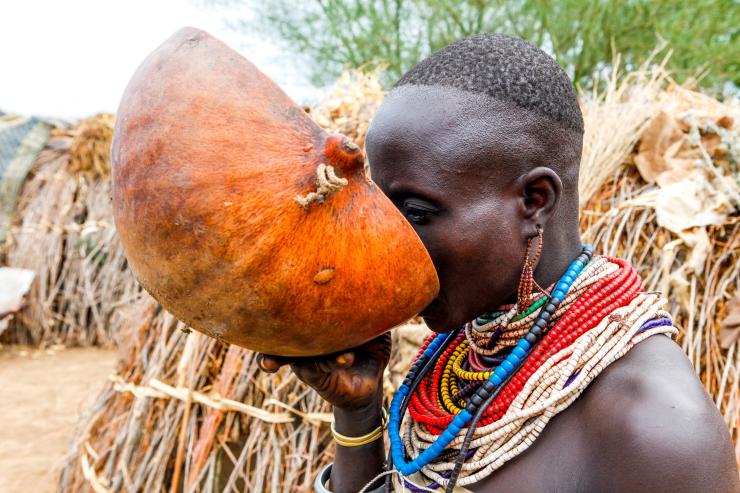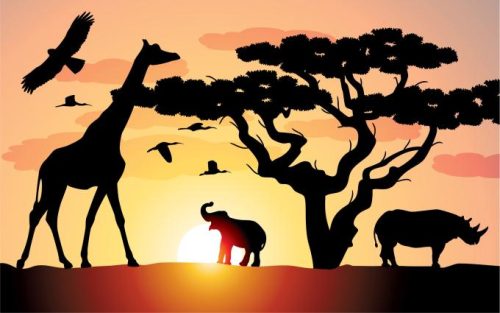African ecological spirituality. Drinking from the wells of tradition.

In Africa, there is no separation between the sacred and the profane. According to common African spirituality, all life is sacred, and the entire creation is sacred, as it is an expression of divine force.
African spirituality is rooted in the belief in a mutual interdependence – indeed, a oneness – of all creation, in its origins, in its permanent existence and in its final destiny. Every creature – especially the human one – exists as a result of divine force, is imbued with this force and tends towards the divine.The order that supports all existence is an expression of this force, and it is up to human society to safeguard this order, to be always able to live in harmony both with divine energy and with all the supernatural forces that emanate from it. Offending the order, which makes the world a cosmos, ultimately means putting humanity and the entire creation at risk.

Some woods, rivers, lakes and mountains, as well as some animals and trees, are considered “sacred” because they are closely linked to worship and more directly connected with human life. 123rf
The West is discovering the cure for the protection of creation as a constituent part of a new global spirituality. Africa, however, has always been aware of the obligations that human beings must have towards Mother Earth, thanks above all to their faith in the constant “spiritual” presence (which does not mean “imaginative” or “not real”) of ancestors. The graves of the fathers – which make the place where a person lives not only his “ancestral home” but also his homeland and that of his children – deserve great honour and special treatment.
Some woods, rivers, lakes and mountains, as well as some animals and trees, are considered “sacred” (and, therefore, not to be “tampered with” or “corrupted”), because they are closely linked to worship and more directly connected with human life. Characteristics of divinity are also attributed to the sun, moon and stars, which illuminate the earth and make orderly life possible; a correct relationship between the cosmos and the community is judged not only desirable but also indispensable.

The most important things in life cannot be explained with reason alone, but are “perceived” through intuition, the heart and ritual. 123rf
The African possesses detailed knowledge of his environment. The boundaries between the human world and the natural habitat are interchangeable. Implicit in his lifestyle (or spirituality) is the awareness that mutuality and reciprocity between the anthropological world and the physical cosmos are necessary and desirable.
The modern vision of the cosmos, which the West seeks to impose on the rest of the world, has already caused serious damage to humanity. In a certain sense, it has also managed to undermine traditional African spirituality. But the African, deep in his soul, knows that the most important things in life cannot be explained with reason alone, but are “perceived” through intuition, the heart and ritual.
As African Christians today, we must learn again to drink from the wells of our truest spirituality. We must reclaim our spiritual space in the “affective” dimensions of life that are no less important than those that are rational. This recovery will translate for Africa into “redemption” from the now dominant Western culture, whose inherent “hostility” towards the world no longer needs demonstration. It will also prove to be a catalyst for change for all of humanity: humanity will feel invited to return to being administrators of the earth and responsible for its survival. Everyone’s existence will be happier and healthier. (Open Photo: A Man from ethnic karo group drinking coffee).
(L.M.)



